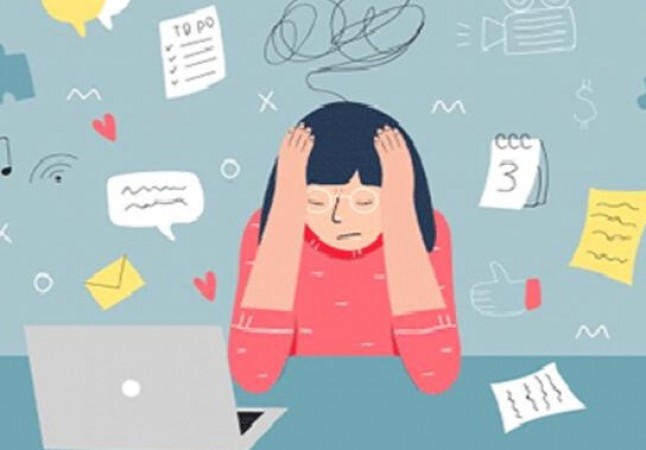
In today's fast-paced and demanding world, stress and anxiety have become prevalent challenges affecting many individuals. It is essential to develop effective coping strategies to manage these mental health concerns and prioritize our overall well-being.Stress is our body's natural response to a perceived threat or danger. It is our body's way of preparing for a challenging situation. When stressed, our body releases hormones such as adrenaline and cortisol, which increase our heart rate, blood pressure, and breathing rate. This response is commonly known as the 'fight or flight' response.
In this article, we will explore practical and evidence-based techniques for managing stress and anxiety. By implementing these strategies into our daily lives, we can cultivate resilience, enhance emotional well-being, and achieve a more balanced and fulfilling lifestyle. Let's delve into the best ways to manage stress and anxiety and embark on a journey toward mental well-being.
Practice Mindfulness and Meditation
Mindfulness and meditation techniques can help calm the mind and reduce stress and anxiety levels. Consider the following approaches:
Mindful Breathing: Focus on your breath, observing each inhalation and exhalation. This simple practice helps redirect your attention to the present moment, promoting relaxation.
Body Scan: Pay attention to your body, gradually scanning from head to toe. Notice any areas of tension or discomfort and consciously release them.
Guided Imagery: Visualize a peaceful and serene place, engaging your senses in the experience. This technique can transport you to a mental refuge and alleviate anxiety.
Engage in Regular Physical Exercise
Physical exercise is an excellent stress and anxiety reducer. Engaging in regular exercise releases endorphins, the body's natural mood-boosting chemicals. Consider the following activities:
Aerobic Exercise: Engage in activities like brisk walking, running, cycling, or dancing to elevate your heart rate and improve your overall well-being.
Yoga and Tai Chi: These mind-body practices combine movement, breathwork, and meditation, promoting relaxation and physical fitness simultaneously.
Nature Walks: Take advantage of the outdoors and spend time in nature. Walking in green spaces can have a calming effect on the mind and reduce stress levels.
Prioritize Self-Care and Relaxation Techniques
Self-care is essential for managing stress and anxiety. Allocate time for activities that promote relaxation and rejuvenation, such as:
Deep Breathing Exercises: Practice slow, deep breaths, inhaling deeply through your nose and exhaling fully through your mouth. This technique activates the body's relaxation response, reducing stress.
Progressive Muscle Relaxation: Tense and relax each muscle group in your body, starting from your toes and working your way up to your head. This practice helps release physical tension.
Engaging Hobbies: Pursue activities you enjoy, whether it's painting, playing an instrument, reading, or gardening. Engaging in hobbies promotes a sense of pleasure and diversion from stressors.
Cultivate Healthy Lifestyle Habits
Adopting a healthy lifestyle can significantly impact stress and anxiety levels. Consider the following habits:
Balanced Diet: Nourish your body with a well-rounded diet, rich in fruits, vegetables, whole grains, lean proteins, and healthy fats. Avoid excessive caffeine and sugar, as they can contribute to anxiety symptoms.
Adequate Sleep: Prioritize quality sleep by establishing a consistent sleep routine, creating a comfortable sleep environment, and practicing relaxation techniques before bedtime.
Limit Stimulants: Limit or avoid substances like alcohol and nicotine, as they can exacerbate anxiety symptoms and disrupt sleep patterns.
Time Management: Organize your tasks and prioritize your responsibilities. Break them down into smaller, manageable steps to avoid feeling overwhelmed.
Cultivate Supportive Relationships
Building and maintaining strong relationships can provide emotional support and help manage stress and anxiety.
Consider the following strategies:
Open Communication: Share your thoughts, feelings, and concerns with trusted friends, family members, or a mental health professional. Talking about your emotions can help alleviate stress.
Seek Social Support: Connect with like-minded individuals or join support groups where you can share experiences, seek advice, and offer support to others facing similar challenges.
Set Boundaries: Establish healthy boundaries in your relationships to ensure your own well-being. Learn to say no when necessary and prioritize self-care.
Seek Professional Help if Needed
If stress and anxiety persist and significantly impact your daily life, seeking professional help is important. Mental health professionals can offer valuable guidance and support. Consider the following resources:
Therapy or Counseling: Cognitive-behavioral therapy (CBT) and other evidence-based therapies can provide effective tools and strategies for managing stress and anxiety.
Medication: In some cases, medication prescribed by a healthcare professional may be necessary to alleviate symptoms. Consult a qualified medical practitioner for appropriate evaluation and treatment options.
Managing stress and anxiety is crucial for maintaining overall well-being and achieving a balanced lifestyle. By practicing mindfulness and meditation, engaging in regular physical exercise, prioritizing self-care, cultivating healthy lifestyle habits, fostering supportive relationships, and seeking professional help when needed, individuals can effectively navigate and mitigate the impact of stress and anxiety. Remember that each person's journey is unique, and it may take time to find the strategies that work best for you. Embrace the process, be kind to yourself, and prioritize your mental well-being.
The Impact of Aromatherapy on Stress Reduction and Relaxation
Night Anxiety Reason: Why does anxiety often increase at night? What is the exact reason?
Unexplored Natural Remedies for Stress and Anxiety